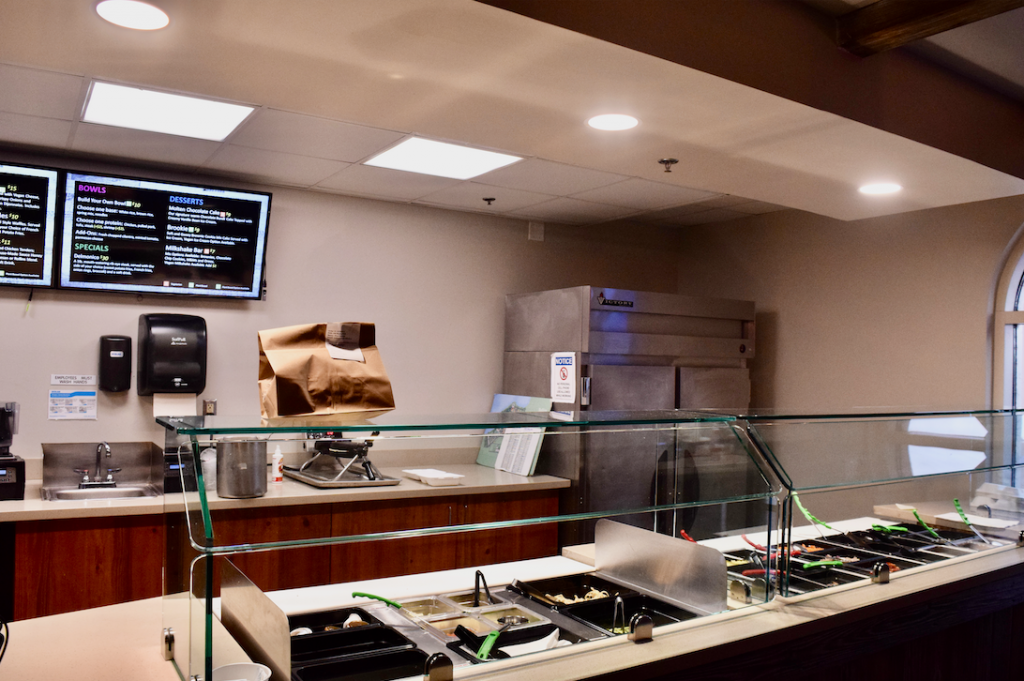
Dining Services is opening a brand new addition to on-campus eateries this upcoming January: the Kosher Cafe. In this interview, Director of Dining Services Cristina Cabanilla, Assistant Vice President of Financial Services Bill Short, and Director of Operations Diego Arenas explain how the idea of the Kosher Cafe started, who it is for, and what precautions they are taking to accommodate religious dietary requirements.
Q: How did the idea for the Kosher Cafe start?
Short: Over the years, we’ve had a number of kosher students that have requested [more dietary options]. The Admissions department also told us that there have been a number of students that have declined to come to Rollins because we don’t have the ability to provide [kosher options].
[…] We’re able to buy products that are from [the kosher] manufacturers that meet those standards, but that’s not meeting the dietary needs of those students, and we’re trying to build an inclusive community. We’ve got a whole lot of students whose needs aren’t being met, and that’s a problem.
Q: What are you most excited about when introducing the Kosher Cafe?
Short: One is just being able to serve that population of students in a full capacity. We have some products that are available, but [now] you [will] really have an entire menu. I think the other is that this concept is an international concept, and it provides a real diversification in our menu that isn’t available elsewhere. So part of the international concept is rotating through international cuisines and trying to bring some of that to the campus. We do it [in Cornell Campus Center] to some degree, but I think down [at Dave’s Boathouse] they may actually find a way to be a little bit more Middle-Eastern and international.
Cabanilla: It’s super exciting because our focus is not only to nurse our students in a safe way, but also creating experiences and also making sure that your culinary experiences on campus are memorable. We always try to be like a restaurant, not a cafeteria. So to be able to accommodate, to give this great experience to our students that eat kosher [and] have this specific diet is super exciting for us so we don’t have to [solely] accommodate them with a couple things at the C-store or try to bring [food] from some other place. It just opens a whole new variety of menu [options] for them. And that is what excites me the most.
Arenas: For me, as the curator, [the most interesting part was] the process that goes [on] behind the scenes […], and the learning curve, and everything we’ve had to learn and understand to make it happen. Students keeping kosher have a better idea of what it takes to do it when most people wouldn’t have an idea. So it’s a learning curve, and it would be great if they eventually got to know what it is like and have them understand the struggle.
Q: For students who are not kosher, what is something you’d want them to know about the new venue?
Short: […] To be very clear, it is a kosher venue, but it is for all of our students. And it will be presented that way […] We probably won’t even use the word so much when it comes to students dining here on campus […] We want to try to bring everybody else there and, like I said, it’s a great diversifier for us. So hopefully just as many students will eat there as [the Campus Center] and everywhere else that we have on campus.
Cabanilla: And we have a lot of students that come up and they’re either vegan, vegetarian, dairy-free, or they are kosher or halal. [The food] won’t be certified halal, but a lot of halal students allow themselves to utilize the kosher designation in keeping with their faith. Because of the way that kosher is prepared, this will be a meat-only kitchen, so we won’t have cheese. Or cheese will be the vegan cheese, which allows us to do a number of vegan dishes. The cafe will be one-hundred percent dairy-free.
So for those students who are vegan or vegetarian, they’ll see a whole new line of products, and for those students who are dairy-free and want to make sure they stay dairy-free, they’ll also see a whole new line of options for themselves. So it’s kind of cool in that way because we have so many pockets of student eating types and dietary needs.
[…] I’ve always understood that you have to put love and care in cooking and baking, but once you start understanding the concept of kosher cooking, it’s multiplied by a thousand. So the fact that someone has to be there to prepare it, and bless it, and examine everything, it just makes me almost want to go to a kosher restaurant only. You know that somebody has touched every dish in such a way that they respect it so much that it makes the product even better. I think students are probably going to love it, even the ones that dont know what kosher is, as they learn what they’re eating they are going to find more value in it.
Arenas: The menu will be inclusive, the menu will be high quality, and the food will be great […] it will be for this campus and for these students.

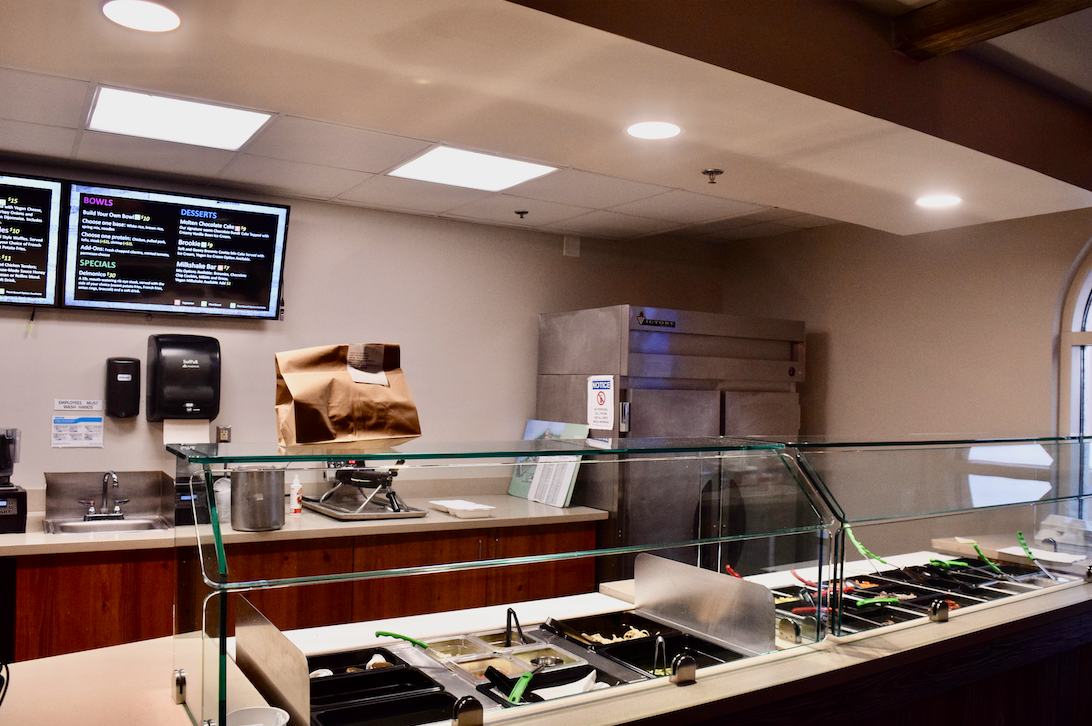
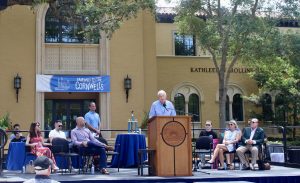

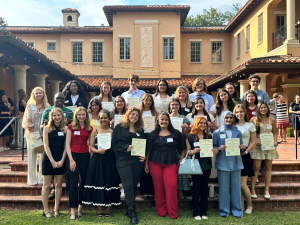





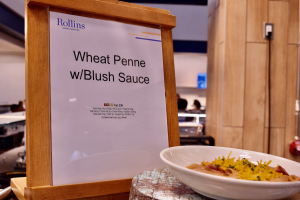
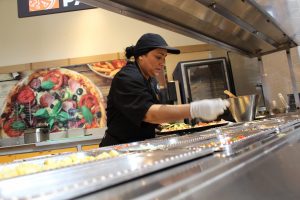
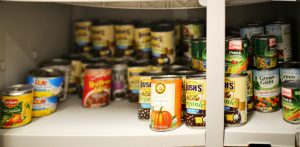
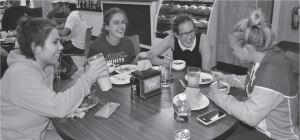




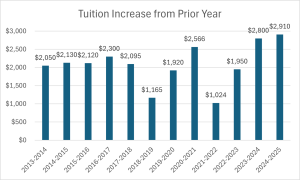

[…] from Hillel and Muslim Student Union have been involved in advocating for more Kosher and Halel options on […]